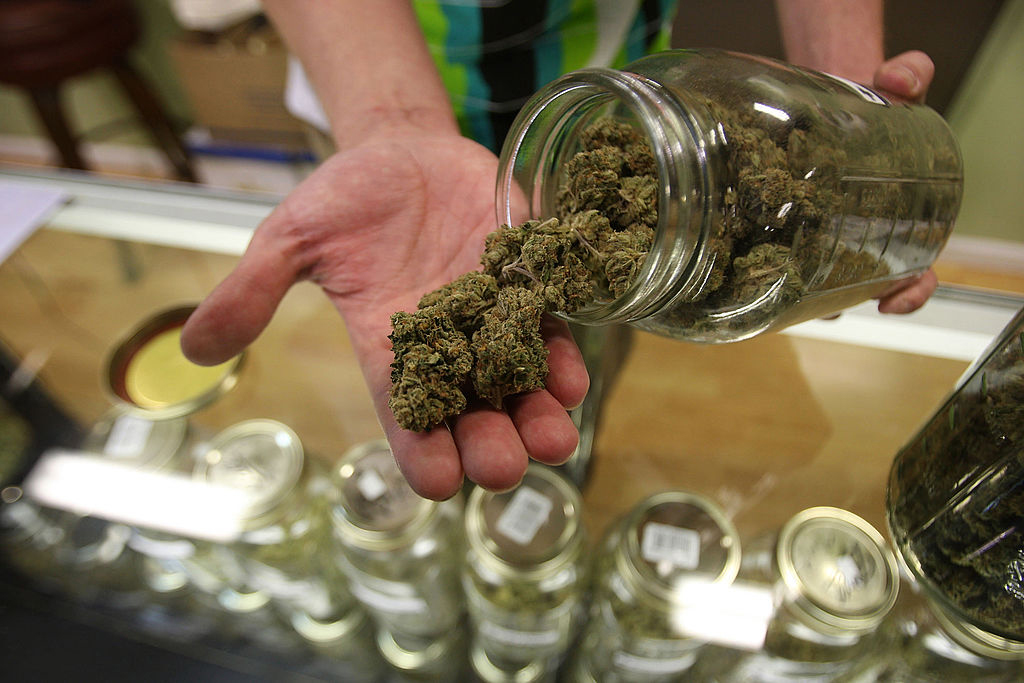Recreational marijuana has been illegal for a while, and when something’s illegal, there are bound to be a few myths about it.

But since that changes in October and marijuana becomes freely available, it’s time to bust a few of those myths as they relate to cannabis and health. Here are what some experts who specialize in the substance want you to know.
MYTH 1: You can have a fatal overdose from smoking pot
By now, we all know this isn’t true, right? But just in case: “You can’t fatally overdose on cannabis,” said Jason Busse, co-director of the Michael G. DeGroote Centre for Medicinal Cannabis Research at McMaster University.
That doesn’t mean you can’t die while doing stupid things because of it though, he noted. Like driving. “In areas where it’s become more readily available or legal, they have seen an uptick in motor vehicle accidents where it’s implicated.”
It’s also not harmless. Like many drugs, it can also cause negative reactions when mixed with other drugs, according to Dr. Blake Pearson, founder of Greenly Medical Consulting, a firm that specializes in cannabinoid medicine.
“Cannabis is still a drug and can do harm in certain settings.”
MYTH 2: You can’t get addicted to marijuana
Busse disagrees. “We do know that you can develop a cannabis use disorder. About seven per cent of regular users of medicinal cannabis will run into that issue.”
Pearson suggests that the risk is lower than for other common drugs. “The truth is, and this has been studied, the dependence for cannabis is lower than for alcohol, cocaine, opiates and even caffeine.”
But, some people do still develop a cannabis use disorder, he said.
MYTH 3: Marijuana is all the same, medically
It’s not, and current users will certainly be aware of this. But Busse thinks that many people are confused about the nature of the product and have “the perception that all cannabis produces this euphoria, this high, the feeling of being stoned.”
That feeling is produced by one chemical – THC – which appears in different concentrations in different strains. “You can actually get certain strains of cannabis that have virtually no THC. They’re very high in another active ingredient, the acronym for which is CBD.”
That ingredient is what has caught the attention of the medical community and been the subject of clinical trials to test its efficacy at treating a certain kind of childhood epileptic seizures, for example.
Pearson said that aside from just smokeable marijuana, there are a variety of products used in a medical setting, including oils and soft gels. “We can actually target their dose right to the milligram of THC or CBD, just like I would do with any other medication.”
MYTH 4: It cures everything. Or nothing
“There are two streams and both are wrong: it’s a panacea and it cures all, and then there’s a stream of people who think it’s purely recreational and there are no medicinal benefits,” said Pearson.
“The truth is it’s in the middle.”
Although there’s a lot of enthusiasm for marijuana’s potential medical uses, and you can find claims online that it will cure almost anything, the actual number of proven medical applications for marijuana is pretty low, said Busse.
“There is a lot of interest and there is a lot of hype and I think at least some of that is being generated by the producers and distributors of this product who are perhaps more motivated by sales than by dissemination of the best evidence that we currently have available,” he said.
There is evidence that it can be used to treat nausea induced by chemotherapy in cancer patients, said Busse, or some rare seizure disorders in children like Dravet syndrome.
WATCH: Montreal-based doctor Antoine Kanamugire dives into the truths about marijuana in his recently released book, “21 Unspoken Truths about Marijuana”

Pearson also said that it can be used in some cases for chronic pain.
But in his practice, sometimes he starts someone on a cannabis oil, “And they don’t have any therapeutic effect. Just like any other medication.”
Busse wants research to continue in the area so that more health claims are backed up by actual evidence.
“It’s sort of this wild west at this point.”
“We’ve got lots of anecdote, lots of hype, a little bit of information – some randomized controlled trials, some reasonable information around chronic pain, and we’ve got to be cautious as we go forward that we don’t get too far ahead of ourselves in terms of prescribing what the evidence supports.”




Comments